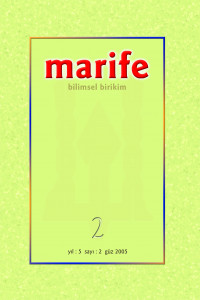Abstract
The question of the eternity of the world was one of the most heated issues of debate
between theologians and philosophers in the Middle Ages. This study aims to compare
the Muslim and Christian traditions with regard to this question, with special reference
to Fakhr al-Dīn al-Rāzī and Thomas Aquinas. As theologians, both these figures
inherited the mainstream interpretation within their respective traditions, that the theory
of the eternity of the world is against the main principle of religion, for it both amounts
to a rejection of the world's creation and is also rationally untenable. The study shows
that by being open towards philosophy, both Rāzī and Aquinas take a different line from
most of the theologians in their respective traditions. Although they criticise the arguments
of both the theologians and the philosophers, their understanding of creation
shows that they are closer to the philosophers than the theologians. Both lay stress on
the world's total dependence on God rather than on the world's temporal creation.
Abstract
Details
| Other ID | JA54EH67MM |
|---|---|
| Authors | |
| Publication Date | September 30, 2005 |
| Published in Issue | Year 2005 Volume: 5 Issue: 2 |
This work is licensed under a Creative Commons Attribution-NonCommercial 4.0 International License.

